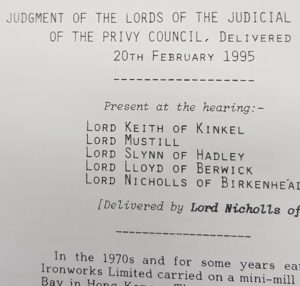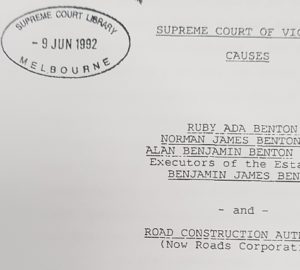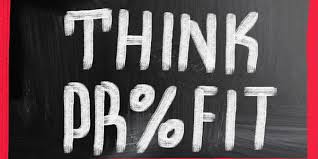Valuing a cafe or restaurant

Coffee and visiting a local cafe are part of many Australians’ daily routine. Australians are known for their love of quality coffee and this is reflected by the number of cafe’s across Australia.
At Rushmore Group we provide cafe and restaurant valuation reports for a range of purposes including:
- Purchase or sale of the Business.
- Taxation purposes.
- Family Law.
- Shareholder disputes; and
- Other Court proceedings.
There is a sizeable market for buying or selling a cafe or restaurants.
Many operators of cafes and restaurants internally measure their weekly takings and in our experience many acquisitions are undertaken on the basis of a multiple of weekly takings (or weekly revenue).
The advantage of the use of a capitalisation of revenue methodology is that the expenses of the Business do not require normalisation. Normalisation adjustments are typically seen with private expenditure, non-operational expenditure, motor vehicle expenditure and the salaries and wages of the Directors of the entity.
Cafe’s and restaurants can also be valued using a more traditional capitalisation of future maintainable earnings (FME) methodology.
More information
We provide cafe and restaurant valuation reports for clients across Australia. If you would like further information in relation to a cafe or restaurant valuation, then please don’t hesitate to contact us now at 1800 454 622 or via email at info@rushmoregroup.com.au
Valuation Best Practices for Business Valuation Firms

The process of undertaking a business valuation should be well understood and free from ambiguity however we find that with many business valuation firms this is not the case.
In a current matter that we are involved in the business valuation firm for the seller of shares in a company treated more than $1 million of shareholder loans by the Company as equivalent to a trade receivable. This caused the value of the goodwill to be misstated. The valuation report also did not include a balance sheet for the entity as at the valuation date. The business valuation firm in question had many years of experience and in our opinion is typical of what we find across a broad range of valuation reports.
At Rushmore Group we are often engaged to either critique or review business valuation reports prepared by others. Where possible we provide our opinion and also any judicial support in relation to the issue in question. The use of case law to support a conclusion can also assist in breaking a deadlock between the parties in a dispute.
Business Valuation Formula
In the above example with the $1 million in shareholder loans ultimately this was an issue with the basic business valuation formula that was used by the business valuer rather than a difference of opinion as to a variable within the formula. Different business valuation experts are entitled to have different opinions as to the appropriate inputs into a business valuation report however ideally the formula and basic methodology should not be in dispute.
We are also still seeing business valuation reports with broad statements. For example, the business valuer will say that in their opinion “a multiple between 3 and 5 is appropriate” and they have then selected the midpoint of 4 times. From the view of preparing an expert report for legal proceedings and indeed any other purpose, we believe that this approach is too broad. It also fails to critically analyse comparable businesses that have been recently sold.
The Business valuer has a number of options available to them in identifying comparable capitalisation multiples. This includes:
- Public announcements as to a purchase and sale of a business
- Independent surveys
- Business for sale advertisements with appropriate adjustments (although this is not as persuasive as transactions that have been completed by a willing buyer and willing seller).
An essential part of the business appraisal service (when applying a capitalisation of future maintainable earnings or discount cash flow technique) is to research and identify comparable transactions. Identifying suitable evidence for an opinion brings a rigor and professionalism to a business valuation report.
Business Appraisal Services

In another matter we are involved with the business valuer in reaching their opinion as to the value of the Business made adjustments that he believed were reasonable. However these adjustments were invalid from a legal point of view. These adjustments made by the valuer changed the business valuation formula and led the business valuer to an erroneous conclusion.
It is therefore important that the valuer has an appreciation for the legal environment that they are operating in.
We typically undertake engagements in relation to the purchase /sale of business, family law valuations, compulsory acquisitions of lessee interests and valuations for tax purposes.
At Rushmore Group we specialise in only engagements that include business valuation services. For example undertaking valuations, critiquing valuation reports prepared by others, related forensic accounting engagements and compensation matters with valuation issues. This approach means that we can develop deep expertise in these subject areas.
For a confidential discussion, please contact Rushmore Group today on 1800 454 622.
What You Should Ask Your Business Valuer About Fair Market Value
 Business owners often have questions about company valuation issues and one of the questions which often get asked is, “What exactly is fair market value?”
Business owners often have questions about company valuation issues and one of the questions which often get asked is, “What exactly is fair market value?”
Fair market value of a business can be defined as the monetary value at which the business would exchange ownership between a willing buyer and a willing seller, neither being under compulsion to buy or sell and each having reasonable knowledge of the relevant facts.
In normal business terms fair market value is the value someone like a third party unrelated investor would use to evaluate how much the Business is worth when they have reasonable knowledge about the industry and how the business is run.
Fair market value can be determined by analysing the historical and projected cash flows of the business. Future cash flows are then discounted back to the present value. It also takes into consideration the assets and liabilities as well as the potential growth of the industry or economy.
Other Specific Factors
Any other factors specific to the business are also taken into account. The value could be discounted for:
- Lack of control
- Size of the business; and
- Lack of marketability depending on the situation.
Fair market value is a term business valuation experts use in their reports and refers to the value of a business on the open market.
Here are some reasons, why a business should identify their fair market value.
Change in business structure
Over time a business may need to change its business structure. Determining the fair market value of the Business may be a requirement of the Australian Taxation Office prior to the assets being transferred to another entity.
Disputes and Legal Proceedings
In legal disputes there is often a requirement to obtain an assessment of fair market value. Typically fair market value valuation reports are required in family law/divorce, partnership disputes, shareholder disputes and inheritance disputes.
Long Term Planning
Fair market value is a useful metric which can be applied in the long-term planning of a business. For instance businesses involved with succession planning can transfer shares to a related party or employee. The starting point for succession planning is to find out what the business is currently worth.
After identifying a successor the next step is to find out the buy-out value of the business. Parents looking for children to take over the business may be relying on the family business to fund their retirement.
The children may have different ideas about where they want to take the business. A succession plan helps align the family interest and avoids conflict.
The valuation of a business can change substantially in relatively short periods of time. Working out the fair market value helps in making appropriate long-term plans relating to transfers, divisions, and consolidations.
Are you looking for a professional business valuation provider to help you identify the fair market value of your business? One of Australia’s top business valuation firms, Rushmore Group is renowned for providing business appraisal services for more than 10 years and offers assistance for both large and small business valuations. If you’re looking to get a business valued please call us on (1800) 454 622 today for more details.
4 Important Qualities of a Trusted Business Valuer

Handling and managing a business is definitely not a walk in the park. You always need to be alert and prepared to address any issue that may arise. After a few years of operating the business, are you wondering how much it costs now? Do you want to know how far you have achieved after all those months? In that case you should seek business appraisal assistance.
Availing of a business valuation service is pretty straightforward and easy these days, thanks to the internet.
However, you should not pick just any business valuer to do your bidding. You have to make sure that he or she is good and trustworthy enough to conduct a professional business valuation. Here are four qualities you should look for in a business valuer:
- Experience – Before working with anyone, make sure he or she has enough experience in using a business valuation formula. Check his background and work history to know more about whom you are working with.
- Affiliation – One way you can check a professional’s track record is by finding the different groups and associations where he is connected. Usually, these groups will have an entire roster of their membership so you can check.
- Reputation – What do people say about the firm or specialist? Are they satisfied with the service, or did the ‘expert’ make a mistake? You have to know how good your business valuer would be.
- Rates – Finally, you should check the rates of the firm or individual. In order to make a more informed decision, check 3 or 4 business valuation firms and get the average of their professional fees.
As you may have observed, rates and fees for business valuation should not be the first consideration. If the rate is too low, then the service provider is probably not that good. Availing of the lowest rate may lead to mistakes, which means inaccurate and unprofitable results for your business.
In case you are looking for a top-notch valuer, one of the top business valuation firms in Australia is the Rushmore Group. Established in 2006, the Rushmore Group has been using effective business valuation methods over the years, to the delight of its clients. To know more about this firm, just dial (1800) 454 622 or fill out this form.
Earnings Multiple Valuation

Earnings Multiple Valuations are suitable for a range of entities that are consistently profitable.
In most business valuations that we undertake we use an EBIT multiple on which to capitalise the future maintainable earnings. In some cases we will use an EBITDA multiple to capitalise maintainable EBITDA.
An earnings multiple valuation is generally not appropriate where:
- The business or entity has made losses.
- The business is of a type where it may be appropriate to value the business using a different technique (e.g. a financial planning practice on a multiple(s) of recurring revenue or a restaurant on a capitalisation of weekly turnover).
However its important to note that every business valuation engagement is different and there may be an exception to the above guidelines.
An earnings multiple valuation is considered a proxy for a discounted cash flow / net present value valuation. A net present value valuation is considered the most academically sound valuation (albeit there are a number of challenges to using the technique particularly with small to medium enterprises).
If you would like further information about the use of an earnings multiple valuation or a business valuation in general, then we would be delighted to speak with you further.
Rushmore are specialist small to medium market business valuers. We offer a fixed fee service of $4,990 per valuation plus GST and our reports are suitable to be used for taxation, court, buying a business, selling a business and other purposes. Please call us on 1800 454 622 for more information.
Bringing More Automation to Forensic Accounting
 Yesterday I was on the Gold Coast to meet with a client and discuss a forensic accounting matter. One of the advantages of offering a national forensic accounting service is that it gets me out on the road and talking to clients and seeing them face to face.
Yesterday I was on the Gold Coast to meet with a client and discuss a forensic accounting matter. One of the advantages of offering a national forensic accounting service is that it gets me out on the road and talking to clients and seeing them face to face.
Another aspect of travelling around Australia is that it allows me time to take time out and think of the “big issues” facing our clients and our business in general. Yesterday my thoughts kept returning to automation, processes and how forensic accounting can benefit from this.
Many practitioners approach forensic accounting from an ad-hoc perspective and expert reports are built up in layers over the process of weeks or even months. In many engagements this is the right approach, however I wonder how much “knowledge” that is built up in one report is actually transferred into the next report and subsequent expert reports. I wonder if with automation, computer programming and databases one could build up the foundations of a report in a much faster, more accurate and ultimately more efficient manner.
I can see a future where the forensic accountant sits down at a computer and builds a report not beginning in a narrative “report” style approach but rather opening a software program and entering data, selecting pre-formatted sections and building the report up in a “database” and then nearing completion exporting the report to the narrative form.
Using computer programming and automated processes is currently used by Rushmore Forensic to initiate business valuation reports and one of the benefits of this approach is that we can pass on the savings in time to our clients. This is approach has meant that we can offer a business valuation report for a fixed fee of $4,990 plus GST. The same report without automation and processes would be more than $8,000.
Yesterday’s trip has inspired me to invest more time in building automated solutions that ultimately will result in a better expert accounting report at a lower cost to our clients.
Welcome to the brave new world of forensic accounting!
